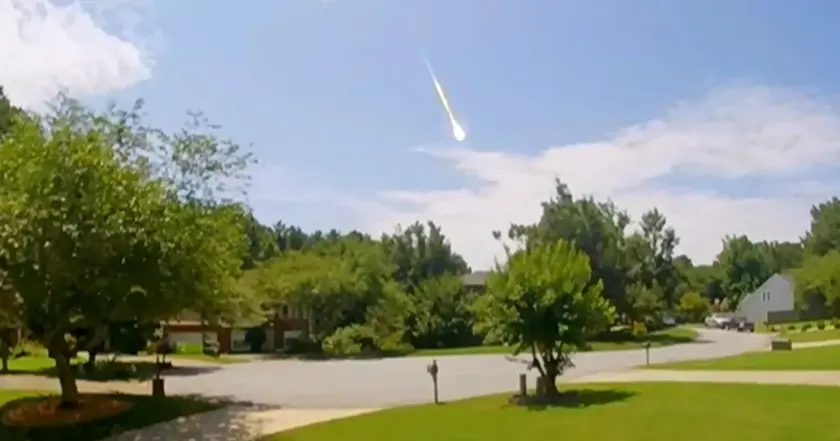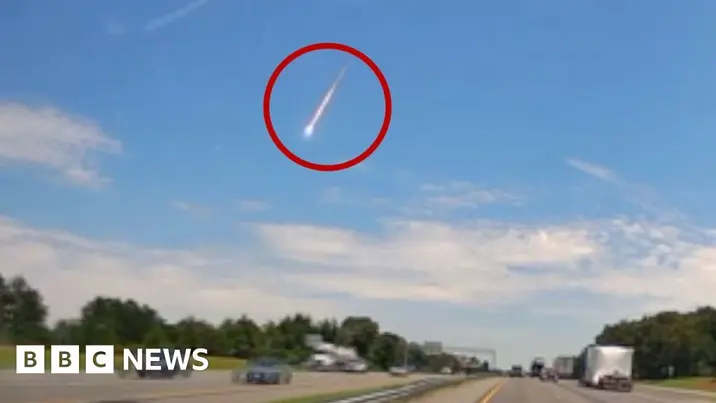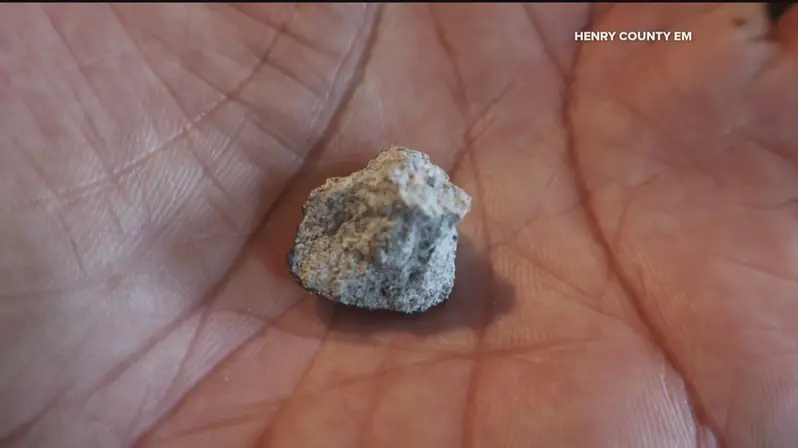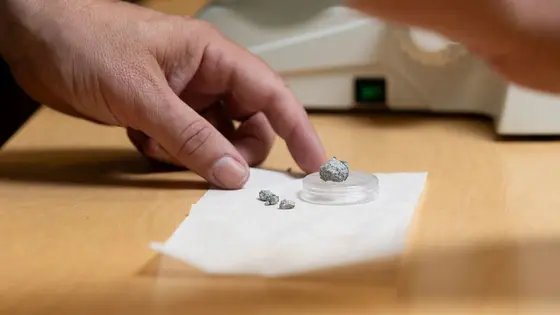T4K3.news
Georgia meteorite older than Earth
A meteorite that pierced a Georgia homeowner's roof is dated to 4.56 billion years, older than Earth by about 20 million years.

A meteorite that struck a Georgia homeowner's roof is dated to 4.56 billion years old, about 20 million years older than Earth.
Georgia meteorite older than Earth by 20 million years
A meteorite that ripped through the roof of a Georgia home this summer left a dent in the floor and dust in the living room. NASA says the fireball exploded over Georgia, with booms heard by residents in the area. Scientists recovered fragments from a cherry tomato-sized piece weighing about 23 grams, and a local geologist notes the rock had a long journey before reaching McDonough.
Analysis of the fragments suggests the meteorite formed 4.56 billion years ago, roughly 20 million years older than Earth. The rock is linked to a group of asteroids in the main belt between Mars and Jupiter, likely from a larger body that broke apart about 470 million years ago. University of Georgia researchers and colleagues at Arizona State University plan to publish the findings with the Meteoritical Society and may name the rock the McDonough Meteorite. Georgia has now recovered 27 meteorites, including six witnessed falls, with the homeowner still finding dust specks in the living room. The incident illustrates how modern technology and public vigilance are expanding meteorite discoveries.
Key Takeaways
"This particular meteor that entered the atmosphere has a long history before it made it to the ground of McDonough"
Harris describing the meteor's journey
"Modern technology in addition to an attentive public, is going to help us recover more and more meteorites"
Harris on discovery capacity
"It belongs to a group of asteroids in the main asteroid belt between Mars and Jupiter that we now think we can tie to a breakup of a much larger asteroid about 470 million years ago"
Scientific provenance and origin
"This is something that used to be expected once every few decades and not multiple times within 20 years"
Harris on Georgia meteorite frequency
The case shows science stepping into everyday life. Public reports and accessible technology turn backyards into research sites and expand a national catalog of meteorites. It also highlights how local names can anchor global science, connecting a small town to a larger solar system story.
At the same time, a claim that a rock is older than Earth by a specific margin will need peer review and independent verification. If confirmed, the finding could deepen our understanding of how primitive material travels from the asteroid belt to our planet and how such rocks illuminate the early history of the solar system.
Highlights
- A tiny traveler from the solar system ends up on a doorstep
- Technology plus public curiosity expands our reach into space
- The sky keeps uncovering secrets about the early solar system
- Naming the rock after its town keeps science grounded
As more rocks are recovered, classrooms and backyards may become new front rows to solar system history.
Enjoyed this? Let your friends know!
Related News

Meteorite in Georgia older than Earth

Meteorite from asteroid belt hits Georgia home

Meteorite found in Georgia

Meteorite found in Georgia home dates back to origins older than Earth

Georgia meteorite older than Earth identified

McDonough meteorite predates Earth

Ancient meteorite found in Georgia ages older than Earth

Ancient Meteorite Lights Up Georgia Sky
